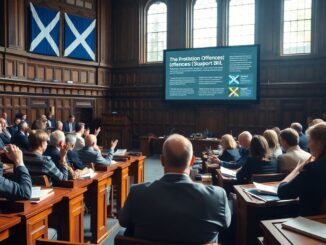The trial of Sonia Dhamani highlights the troubling state of dissent in Tunisia post-revolution.

Topics covered
The recent sentencing of Sonia Dhamani to two years in prison raises some tough questions about the state of political dissent in Tunisia. Is this just another case of judicial overreach, or is it part of a larger trend to silence those who challenge the government? The implications here stretch far beyond one person’s fate; they touch the very essence of democracy in a country that once stood as a symbol of post-revolutionary progress.
Behind the Numbers of Dissent
To understand the backdrop of Dhamani’s trial, we need to look at the unsettling reality. Since President Kais Saied took near-total control of the government in 2021, many political opponents, journalists, and activists have found themselves behind bars.
The Tunisian judiciary, armed with a controversial cybercrime law known as Decree 54, has become a tool against anyone daring to voice dissent. Rights groups have raised alarms about a troubling rise in politically motivated prosecutions. In fact, the data shows a significant uptick in such cases since Saied’s consolidation of power.
What do the numbers tell us? More than 50 opposition figures are currently jailed on charges ranging from conspiracy to terrorism. This wave of incarceration reflects a broader strategy aimed at stifling dissent, effectively dismantling the democratic gains made during the Arab Spring. The chilling effect on public discourse is palpable; many Tunisians now hesitate to express their views for fear of repercussions.
Case Study: Tunisia’s Democratic Aspirations
Remember when Tunisia was seen as a beacon of democratic hope after the Arab Spring? The ousting of long-time dictator Zine El Abidine Ben Ali in 2011 marked the dawn of a new era filled with vibrant political engagement. Numerous elections were held, many of which were hailed as free and fair by international observers. But the path hasn’t been without its bumps along the way.
The combination of a struggling economy and the comeback of anti-democratic forces has provided a breeding ground for the current regime’s authoritarian tendencies. Saied’s actions, including the dissolution of parliament, have led many to liken it to a coup—an assessment echoed by a host of opposition leaders and activists. Dhamani’s case is just one piece of a larger puzzle, where dissent isn’t just discouraged but actively punished.
Lessons for Political Activism and Advocacy
The circumstances surrounding Dhamani’s trial offer critical lessons for activists and anyone invested in political advocacy. First and foremost, it highlights the importance of resilience in the face of adversity. Activists need to be prepared for setbacks and stay committed to their causes, even when the odds are stacked against them. Secondly, understanding the legal landscape is essential. Familiarity with local laws can empower advocates to navigate the complex terrain of political dissent.
Moreover, building coalitions and fostering solidarity among different groups can amplify voices that are often marginalized. Tunisia’s historical journey toward democracy serves as a stark reminder of how fragile freedom can be. Lastly, documenting and sharing information about injustices is crucial. Transparency can be a powerful tool in holding those in power accountable, especially in environments where the judiciary might be compromised.
Actionable Takeaways
In conclusion, Sonia Dhamani’s case isn’t an isolated incident; it reflects a broader crisis in Tunisia. As we unpack this situation, it’s vital for stakeholders to focus on advocacy that preserves democratic values. Here are some actionable takeaways to guide future efforts:
- Develop a solid understanding of the legal frameworks governing dissent in your region.
- Build alliances with local and international human rights organizations.
- Engage in public awareness campaigns to educate citizens about their rights.
- Use digital platforms to amplify marginalized voices and share critical narratives.
- Encourage dialogues that bridge divides within civil society to strengthen collective action.
Ultimately, the journey to safeguard Tunisia’s democratic dreams will require vigilance, solidarity, and an unwavering commitment to justice.




